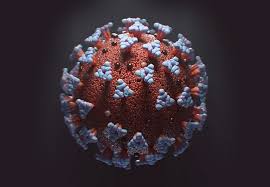The Executive Director, NPHCDA, Dr. Faisal Shuaib, disclosed this at the Presidential Task Force briefing on COVID-19 in Abuja recently.
Shuaib said that the vaccine would be got through the global COVAX scheme.
He said that the initial doses would come as part of Nigeria’s plan to inoculate 40 per cent of the population in 2021.
Though renowned professor of virology and former Vice-Chancellor of the Redeemer’s University Nigeria, Oyewole Tomori, said the COVID-19 vaccine is not the solution to the viral infection and that vaccination does not protect anyone from exposure and infection, he encouraged Nigerians to take the vaccines when available in the country.
Tomori said, “Vaccine is not the solution to the problem. If you get a vaccine, the likelihood is that you will develop immunity but then, that immunity does not protect you from exposure, it does not protect you from infection.
“What the vaccination does is to prevent your infection from becoming a disease.”
Indeed, Public Health England advised that, while minor illnesses without fever or systemic upset are not valid reasons to postpone getting the vaccine, anyone who is “acutely unwell” should postpone taking the vaccine until she or he has fully recovered.
“The main aim of postponing is to stop doctors from confusing signs of an actual illness with side effects of the vaccine,” PHE told Huffington Post.
The public health agency warned that vaccination should be delayed in people who have a confirmed infection of COVID-19.
“Ideally, this should be deferred by four weeks after symptoms first appear or four weeks from the first confirmed positive test if you are asymptomatic,” the medium quoted experts as saying.
For those who are asymptomatic or incubating COVID-19, PHE says it is “unlikely to have a detrimental effect on the illness” if such people obtain the vaccine.
Meanwhile, the Chief Medical Director, Federal Teaching Hospital, Ido-Ekiti, Prof. Adekunle Ajayi, says availability of vaccines for COVID-19 should not overshadow the observance of safety and preventive protocols.
“The best form of prevention in infectious diseases is hygiene; that is an issue that we must not let down.
“We must continue to talk about hygiene — personal hygiene, community hygiene and basic things — use face mask, wash your hands, use hand sanitisers, maintain the appropriate distance and avoid crowded areas,” Ajayi said.
source: Punch

 Experts say if you feel a bit unwell but don’t have COVID-19 symptoms, you should defer taking the coronavirus vaccine. The World Health Organisation also warned that people with a history of severe allergic reaction to any component of the COVID-19 vaccine and most pregnant women should not to take the Pfizer-BioNTech COVID-19 vaccine.
Experts say if you feel a bit unwell but don’t have COVID-19 symptoms, you should defer taking the coronavirus vaccine. The World Health Organisation also warned that people with a history of severe allergic reaction to any component of the COVID-19 vaccine and most pregnant women should not to take the Pfizer-BioNTech COVID-19 vaccine.




